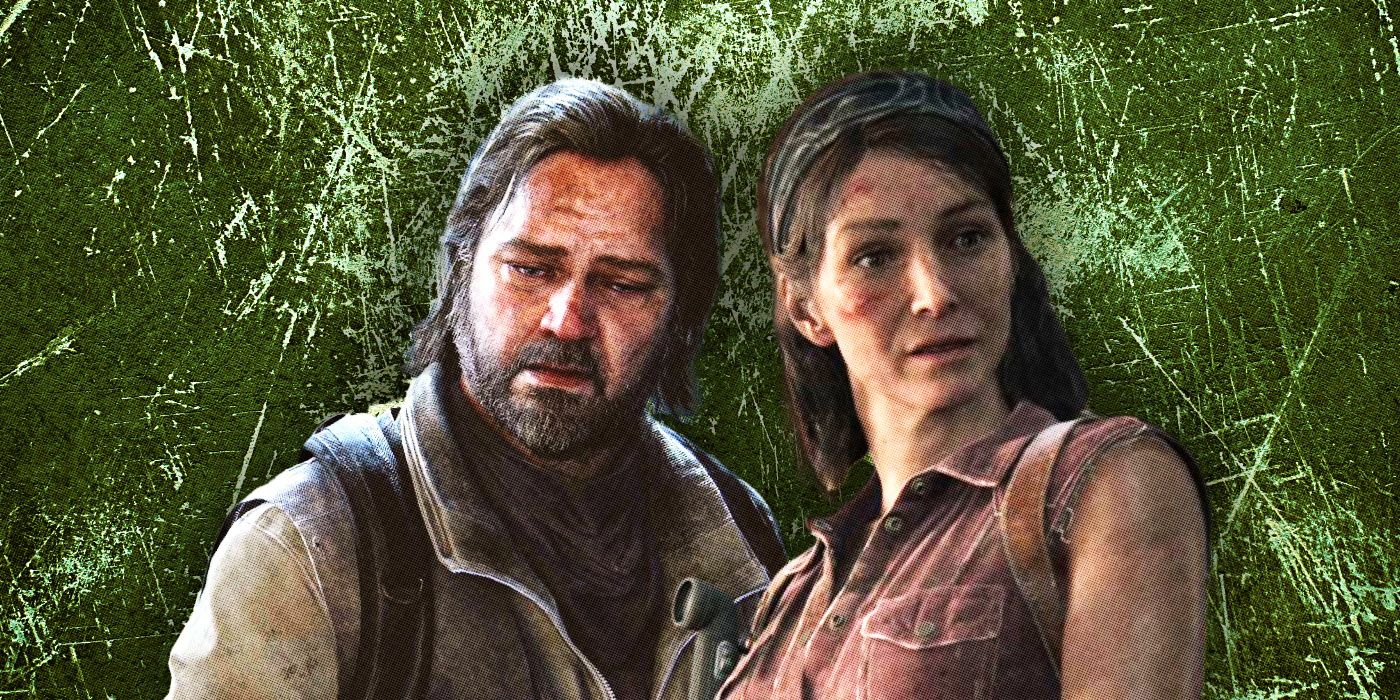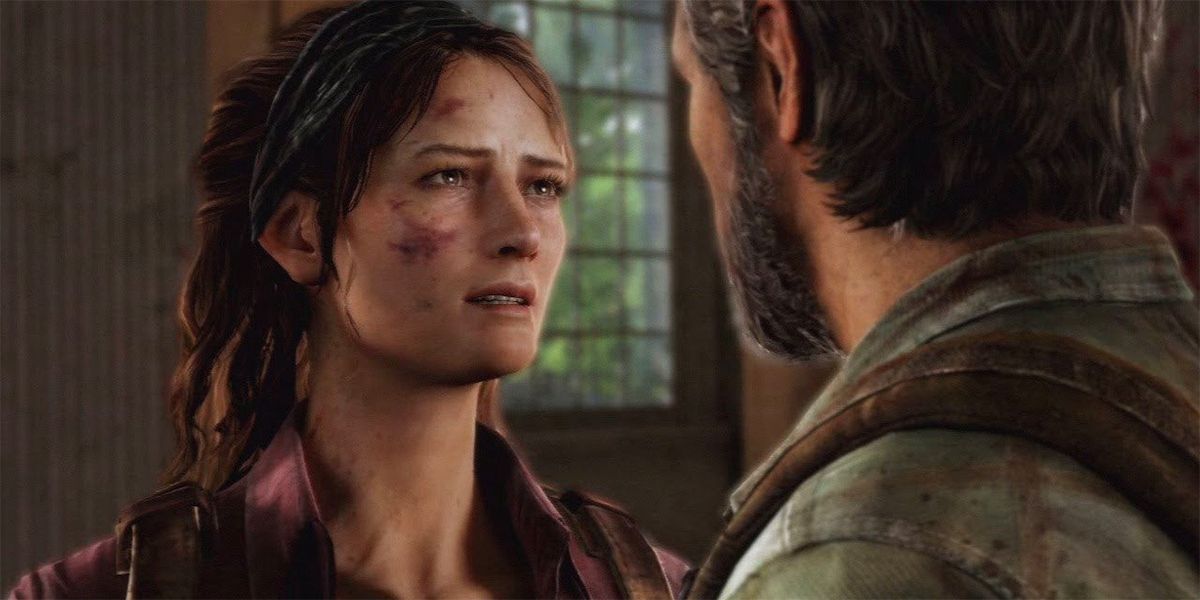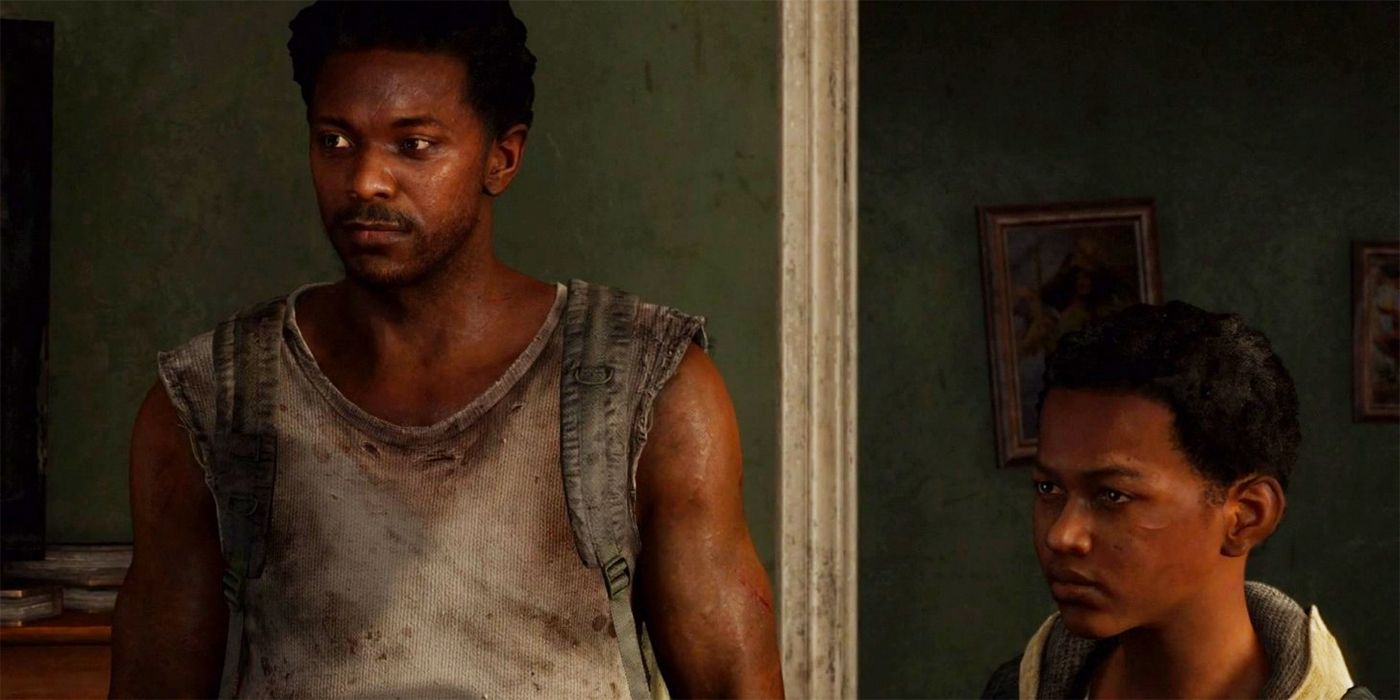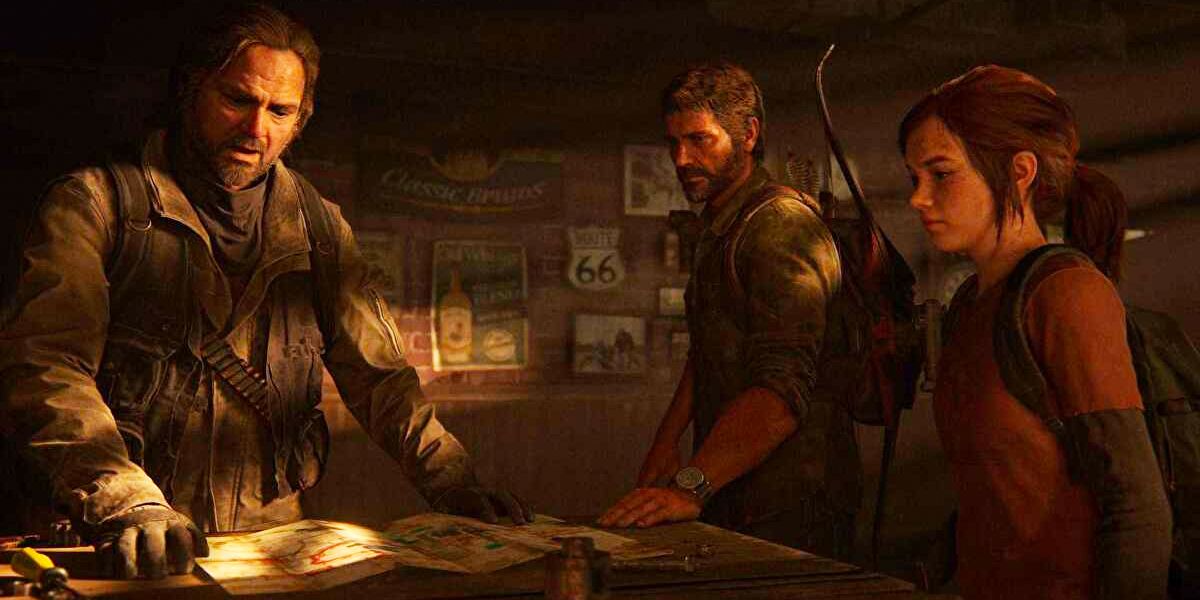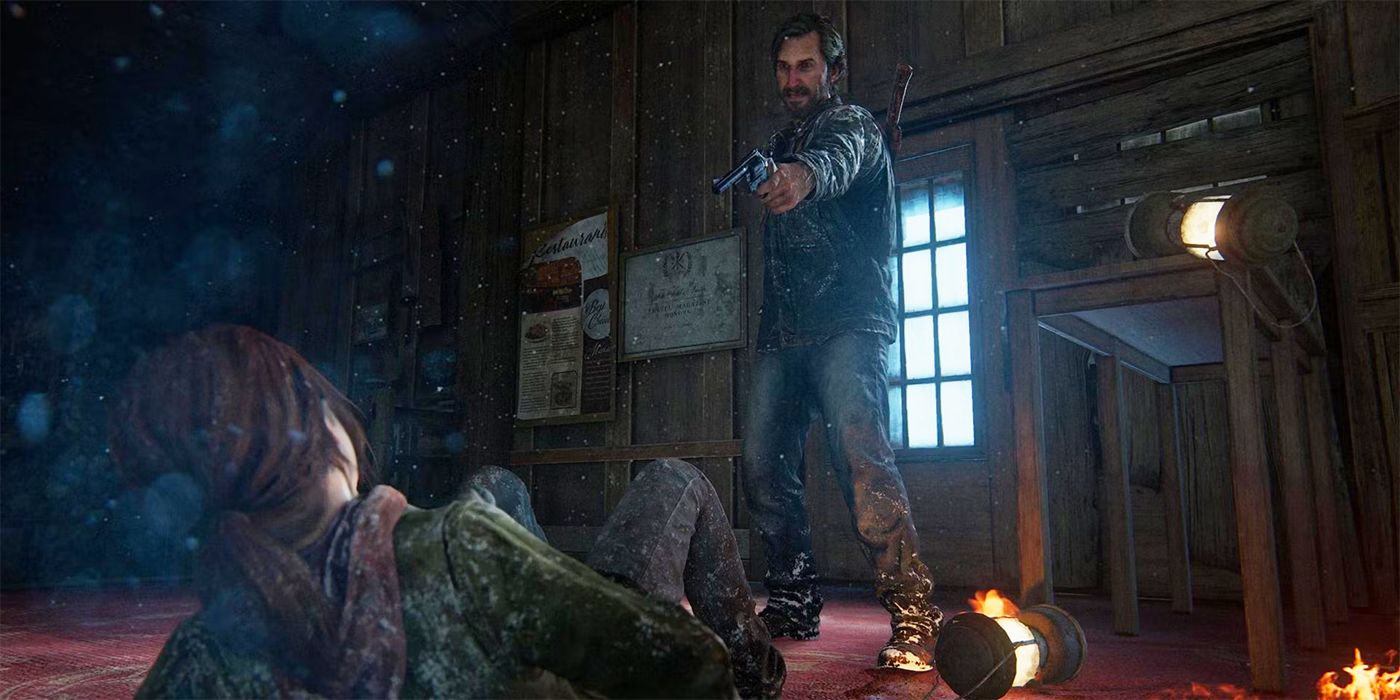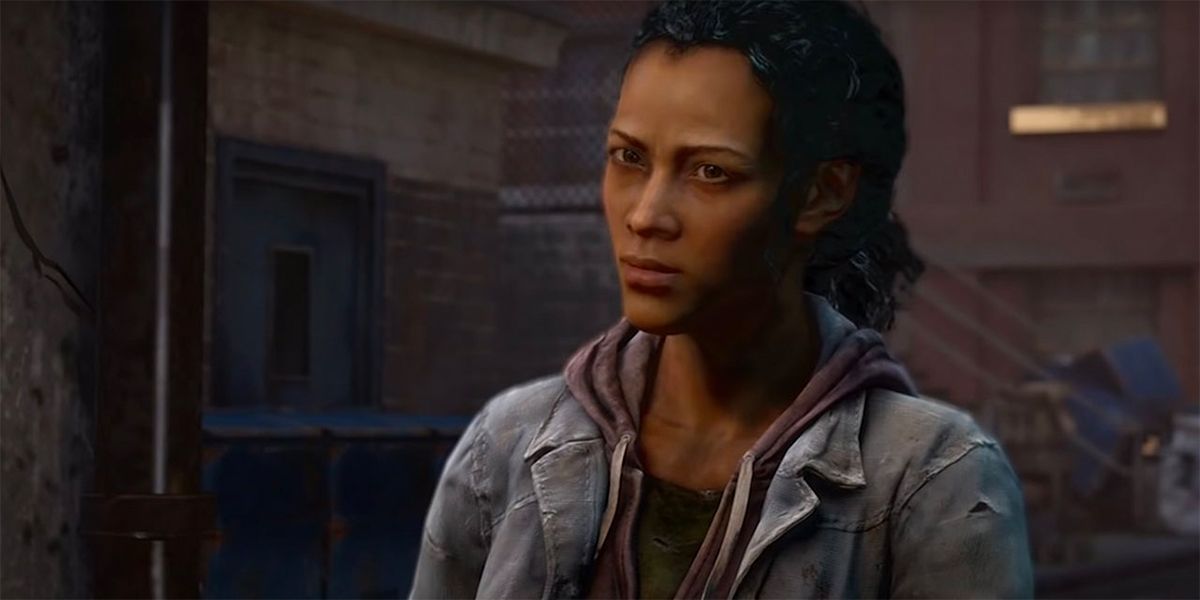Editor's Note: The following contains spoilers for The Last of Us Part I Video Game.Joel and Ellie from The Last of Us are two of the most recognized names in video game canon. With HBO's highly anticipated adaptation launching this weekend, fans will experience a familiar story with new voices as the acclaimed Pedro Pascal and Bella Ramsey assume the mantles from original actors Troy Baker and Ashley Johnson. But while Joel and Ellie's beloved status was painstakingly earned through a subtle script and dedicated performances, their relationship wouldn't hold poignancy without believable stakes. Video game developer Naughty Dog created a striking post-apocalyptic landscape through overgrown forestry and crumbling architecture, yet the setting's true atmosphere and the understanding of its dangers stem organically from the supporting characters. How each individual moves through the world and the subsequent fates they endure conveys the complex and very human dynamics of The Last of Us more effectively than the player battling hordes of grotesque Infected.
For anyone new to the franchise (massive spoilers ahead!), The Last of Us is an inventive take on the zombie dystopia second and a story about love, trauma, and family first. The zombies (aka the Infected) are window dressing for protagonist Joel as he escorts Ellie, a girl immune to the Infected's bite, across the country to a revolutionary militia group called the Fireflies. The HBO series' overarching plot is the same, and it's likely to remain faithful to the game's energy with original writer Neil Druckmann serving as creator and writer alongside Chernobyl showrunner Craig Mazin. The television series includes new characters and new perspectives versus the game, where knowledge is limited to Joel and Ellie's point-of-view and the ambiance relies upon characters' reactions to an established environment.
For ten years The Last of Us has endured for its precise cinematic construction and raw emotion. Whether it's necessary for the television series to use the supporting characters as narrative shorthand remains to be seen, but setting Joel and Ellie against a brutal world makes their relationship as profound as their legacy deserves.
The Character of Tess Shows What It Takes To Survive
The first person introduced after the prologue is Tess, played first by Annie Wersching and now Anna Torv in the series. The HBO website describes her as "a hardened survivor," which puts it politely. Tess is Joel's smuggling partner as well as the first indicator of how much ruthless capability and bargaining power is required to survive. Fellow humans prove as dangerous as any mindless Infected between the authoritarian military ruling their quarantine zone and other smugglers who are just as desperate as Joel and Tess to make ends meet.
Accordingly, Tess doesn't hesitate to kill in either defense or blasé impatience, and her influence over the area's other dealers illustrates the safety she fights to retain. Despite her callousness, she and Joel understand each other, displaying empathy as often as they flirt. Their connection proves how mutual affection and trust can still develop in this ferociously cut-throat world even if such care is unnamed.
Tess's arc concludes with a sacrificial stand-off against the soldiers who cornered her, Joel, and Ellie. She was bitten by an Infected earlier that day, hence her decision to buy the others time. Her death demonstrates how quickly a loved one is lost and the smidgen of autonomy individuals have left; in the face of infection, she chooses to die her way rather than succumb. Her belief that Ellie is the key to a vaccine is why Joel continues to resentfully help the girl, and it makes Tess a hero. Fringe and Mindhunter star Anna Torv is an inspired casting choice who's liable to steal the show with her tenacious heart.
Henry and Sam Prove No One is Safe
Later in their journey Joel and Ellie ally with another survivor duo, Henry (game Brandon Scott, series Lamar Johnson) and his younger brother Sam (Nadji Jeter and Keivonn Woodard). The four escape Pittsburgh's quarantine zone and the brothers prove themselves good people. Joel even trusts himself to open up to Henry, a previously unfathomable gesture for the traumatized man. That comfort shatters when an Infected Sam attacks Ellie, leaving Henry no choice except to kill his little sibling. Henry's grief is overwhelming, and he takes his own life.
The tragic event is an echo of Tess's loss but more brutal for Sam's age and Henry's despair. The Last of Us is a world where Tess was almost lucky compared to Sam; his situation didn't afford him a choice. Henry and Sam's deaths further compound the importance of Ellie's immunity and the wider world's sparse happiness. On a technical level, the Druckmann-Mazin team swapped Pittsburgh out for Kansas City and Sam is a person with autism and deafness, both of which are inclusive changes.
Bill Offers a Hopeless Contrast
In contrast, stands Bill (W. Earl Brown), a paranoid and angry man living alone in a booby-trapped house. His only goal is self-centered survival, and Bill's begrudging help comes with a free side of verbal lashings and pragmatic declarations that Joel is better off alone. In Bill's experience, caring for others is too risky. Similarly, Joel finds scattered notes written by Ish, an unseen survivor, whose story reveals how his generosity toward others nearly ended in death. Both Bill and Ish offer up a merciless worldview that lacks hope. No two people would react the same way to the collapse of society, so the characters' varied perspectives naturally balance the other and maximize narrative creditability.
Parks and Recreation alum Nick Offerman tackling a darker role with Bill is a win for HBO, and Bill's story is one of the series' few known deviations. In the game, his missing partner, Frank, is a corpse, whereas Druckmann and Mazin incorporate a living version (Murray Bartlett), which promises new and engaging material for the tragic couple.
Evil in 'The Last of Us' Has a Name and a Face
The Last of Us is a survival game, which by nature has the player fight enemies. If a player chooses to sneak past them instead, Joel hears idle chitchat reminiscent of bored Stormtroopers ("You know what's going on?" "Nah"). The quick hits of personality are refreshing after decades of fighting generic cannon fodder, but once combat begins they're still no more substantive than a nameless person to shoot.
Evil assumes a name and a friendly face halfway through the story when Ellie encounters David (Nolan North, Scott Shepherd) in the freezing winter woods. David earns Ellie's tentative trust through lies and manipulation thanks to North playing him as gentle and soft-spoken. When he reveals he's the leader of a cannibalistic cult before he stalks and kidnaps Ellie, the dramatic subversion is remarkable. David invites Ellie to join his little group, but she refuses, and David's violent attack forces Ellie to butcher him with a machete.
Much like David served as the first named villain, he's Ellie's first kill that's not behind the distance of a sniper scope. David's cruel games exacerbate the kill-or-be-killed nature of the world, especially after all parties grew accustomed to helpful people. Killing David also traumatizes Ellie, who, for all her ferocity, is a lonely fourteen-year-old girl. Loss of innocence isn't a new concept, but Ellie's anguish confirms the depth of her shared love with Joel when he comforts her in the aftermath.
A Broken Man Rediscovers How To Love (At a Cost)
Once the duo reach their destination, Joel learns from Marlene (Merle Dandridge in both versions), the Fireflies' leader, that to create a vaccine the Fireflies must extract a portion of the cordyceps fungus from Ellie's brain. Marlene knows the operation is fatal, but saving others is worth sacrificing the girl she's protected since Ellie's birth. The narrative's moral crux hangs upon Marlene, and she's the most complicated and compelling figure for it.
As fans know, Joel saves Ellie by leaving a bloody trail in his wake. His decision spawned countless debates over Joel's moral ambiguity to the point the game's sequel, The Last of Us Part II, centered the plot around the massacre's repercussions. Yet this emotional and philosophical dilemma lacks a "right" answer, which is beautifully in keeping with The Last of Us's motifs. A broken man rediscovers how to love because love still flourishes inside an unimaginable tragedy. The full-circle narrative accepts that affection makes one vulnerable, and two traumatized souls decide the promise of inevitable pain was worthwhile.
It's uncertain if The Last of Us Season 1 ends with Joel's rampage or pauses earlier in the story. Whenever the undoubtedly gruesome scene airs, watching Pedro Pascal, the fictional grumpy dad of the decade, save his little girl, will be devastating.

